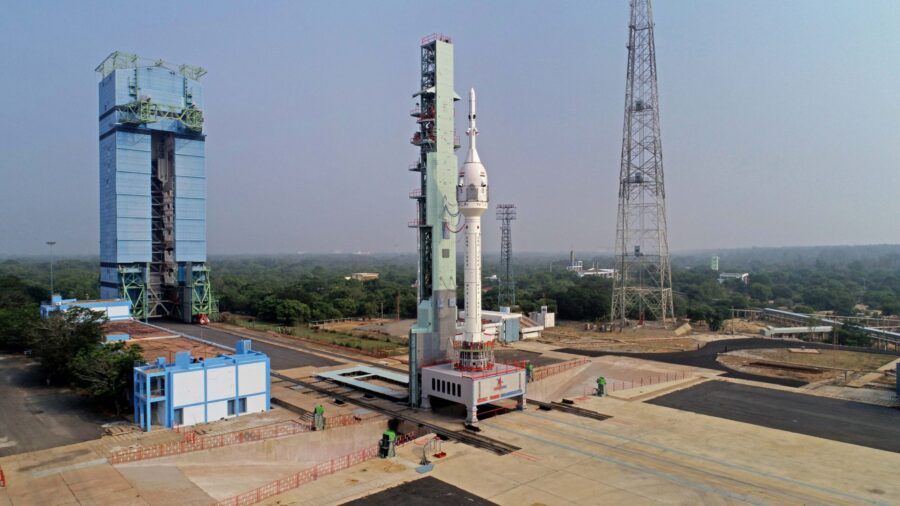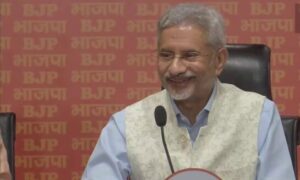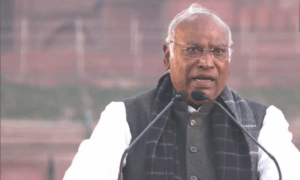
Picture : ISRO / X
After the success of Chandrayan-3 landing and launch of mission Aditya-L1 to study the Sun, Prime Minister Narendra Modi set two new targets for space agency ISRO: setting up an Indian space station by 2035 and taking the first Indian to Moon by 2040. Buoyed by the success of the Chandrayan-3 and Aditya L1 mission that is scheduled to reach its destination by November end, Modi asked the space agency to establish a ‘Bharatiya Antariksha Station’ (Indian Space Station) by 2035. The big news comes four months after India and the US had agreed to send an Indian astronaut to the International Space Station in 2024 on board a US spacecraft.
Mission Gaganyaan:
ISRO to commence unmanned flight tests for the Gaganyaan mission.Preparations for the Flight Test Vehicle Abort Mission-1 (TV-D1), which demonstrates the performance of the Crew Escape System, are underway.https://t.co/HSY0qfVDEH @indiannavy #Gaganyaan pic.twitter.com/XszSDEqs7w
— ISRO (@isro) October 7, 2023
The ISS has been in existence for almost 23 years, carrying out scientific experiments in a microgravity environment. The low earth orbit space station has seen the longest continuous human presence in space, surpassing the record of Russian station Mir that was in space for close to ten years.
“To realise the Prime Minister’s vision, the Department of Space will develop a roadmap for moon exploration. This will encompass a series of Chandrayaan missions, the development of a Next Generation Launch Vehicle, construction of a new launch pad, setting up human-centric Laboratories and associated technologies, ”said the government officials. The PMO further added, “Prime Minister Modi expressed confidence in India’s capabilities and affirmed the nation’s commitment to scaling new heights in space exploration,”.
Modi also asked the space scientists to work towards interplanetary missions that would include a Venus Orbiter Mission and a Mars Lander. On the Gaganyaan mission, ISRO chairman, S Somanath said “the much awaited human space flight mission had been pushed to 2025 as scientists would have to conduct 20 major tests before an Indian astronaut is sent to space in an Indian spacecraft atop an Indian rocket. The tests will include three uncrewed missions of the human rated launch vehicle. The first de monstration flight of the Crew Escape System Test Vehicle is scheduled on October 21.” More than Rs 3,000 crore was spent on the Gaganyaan mission as of October 2022.
Mission Gaganyaan:
TV-D1 Test FlightThe test flight can be watched LIVE
from 0730 Hrs. IST
on October 21, 2023
at https://t.co/MX54CwO4IUhttps://t.co/zugXQAYy1y
YouTube: https://t.co/75VtErpm0H
DD National TV@DDNational#Gaganyaan pic.twitter.com/ktomWs2TvN— ISRO (@isro) October 19, 2023
India’s space ambitions received a boost with the successful landing of Chandrayaan-3, India’s latest moon mission, which saw its landing module, Vikram, make a successful soft touchdown in the lunar south pole region on 23 August. Since then, ISRO has also launched Aditya-L1, India’s first solar observatory built to study the sun’s atmospheric conditions, and its impact on the space weather of our entire solar system.
After the two recent successful launch, Indian space scientists are highly motivated to building an Indian space station and with government backing ISRO to the hilt , India’s space journey is now on a roll much to the envy of the world .
[the_ad id=”55724″]


















